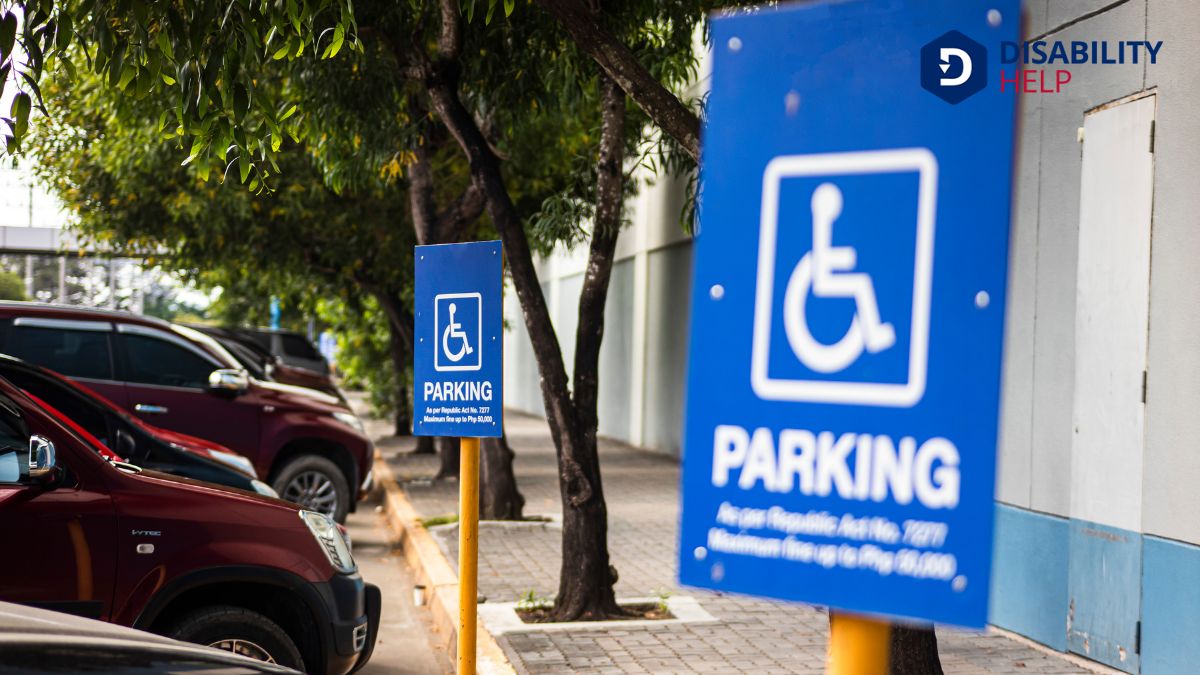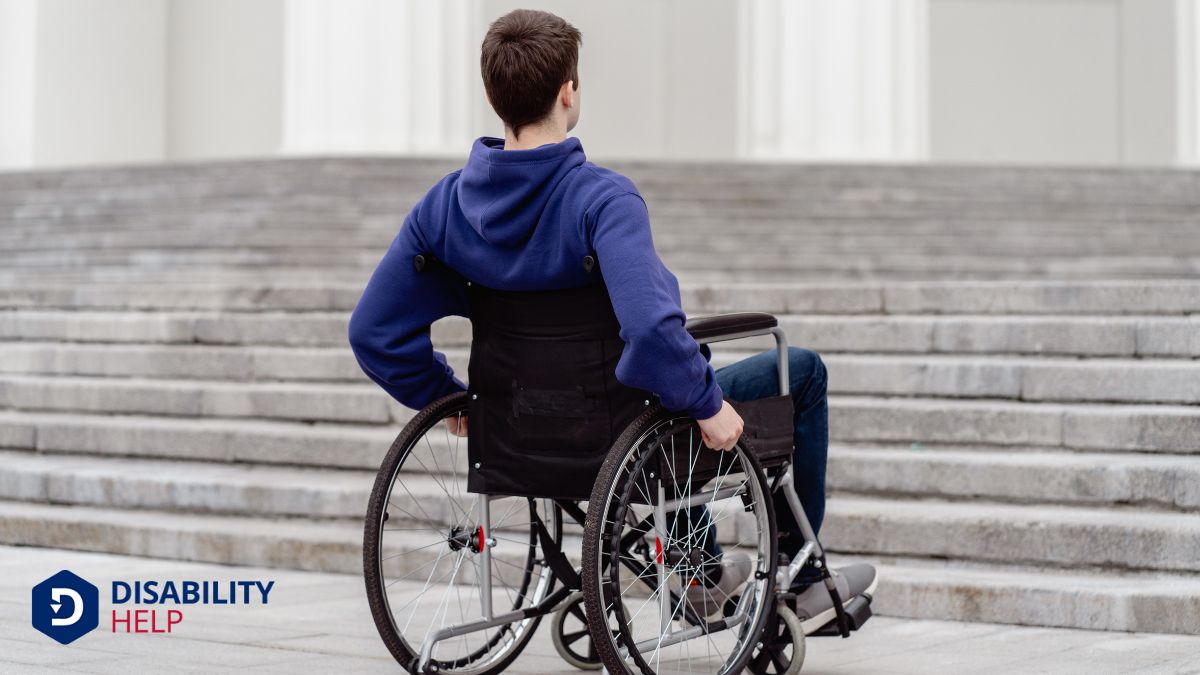When we're denied disability transportation services, it's important to know our legal options to assert our rights. We can start by understanding the protections under the ADA and documenting every incident meticulously. Filing a formal complaint with the relevant authorities is an essential step, but what if that doesn't resolve the issue? There's more we can do, from exploring mediation to seeking legal counsel. Let's consider the full range of actions available to us.
Key Takeaways
- File a complaint with the agencyThe capacity of individuals with disabilities to act independently and make their own choices. overseeing local transportation services, detailing the denial and its effects.
- Consult with a legal professional experienced in disability law to explore potential legal actions.
- Utilize mediation to discuss issues with service providers, guided by neutral third parties.
- Document all incidents and communications related to the denial to support your case.
- Connect with disability rightsThe legal and human rights afforded to individuals with disabilities, often the focus of advocacy an... organizations for advocacyThe act of arguing in favor of, supporting, or defending the rights and interests of individuals or ... support and legal resources.
Understanding Your Rights Under the Americans With Disabilities Act (ADA)

When it comes to our rights under the Americans With Disabilities Act (ADA)A U.S. law that prohibits discrimination against individuals with disabilities in all areas of publi..., it's crucial to know that this landmark legislation protects us against discrimination in various areas, including transportation.
The ADA mandates that public transportation systems provide equal accessThe principle that all individuals, including those with disabilities, should have equal opportunity... and reasonable accommodationsModifications or adjustments in healthcare settings to support patients with disabilities. to individuals with disabilities. This means buses, trains, and other transit services must be accessible and serviceable for everyone.
If we experience barriers or refusal of service, we're entitled to question and challenge these actions. Remember, the ADA empowers us to advocate for our rights and guarantees that transportation systems accommodate our needs.
Documenting the Denial of Services
When we're faced with a denial of disability transportation services, it's essential that we gather all necessary evidence to support our case.
We should keep a detailed record of all communication details, including dates, times, and the names of individuals we spoke with.
Gathering Necessary Evidence
Successfully gathering necessary evidence is an imperative step in documenting the denial of disability transportation services.
First, we should collect any written correspondence or official notices that indicate the denial. These documents serve as tangible proof of the rejection.
Let's also keep any brochures or service agreements that outline the transportation services we were entitled to.
If possible, obtaining witness statements from others present during the denial can strengthen our case. They can provide firsthand accounts that validate our experiences.
Capturing the date, time, and location of the incident is vital, helping us establish a timeline.
Recording Communication Details
Although it might seem tedious, recording communication details is essential when documenting the denial of disability transportation services. We need to guarantee every interaction is documented meticulously.
Let's keep a log of phone calls, emails, and any in-person discussions with service providers. Note the date, time, names of individuals involved, and key points discussed. This thorough documentation provides a clear timeline and supports our case if legal action becomes necessary.
If we receive any written denials, let's save these documents carefully. It's also helpful to summarize verbal communications shortly after they occur, capturing any promises or refusals made.
Filing a Complaint With the Appropriate Authorities
Filing a complaint with the appropriate authorities is a crucial step if our requests for disability transportation services are denied.
First, we need to identify the agency responsible for overseeing transportation services in our area. This could be a local transportation authority or a state department of transportation.
Once identified, we should gather all our communication records, noting dates and details of the denial. This documentation strengthens our complaint, showcasing the issue clearly.
Next, we should complete any required forms, which might be available online or through the agency's office.
When submitting the complaint, we should include concise details about the denial and how it affects us.
Seeking Assistance From Disability Advocacy Organizations
When we're faced with denied disability transportation services, connecting with disability advocacyEfforts and services aimed at protecting and promoting the rights and interests of individuals with ... organizations can be an essential step.
Together, we can identify the right organizations that offer the legal resources and guidance we need.
These groups can also help us navigate the support services available to protect our rights and guarantee fair treatment.
Identifying Advocacy Organizations
Seeking assistance from disability advocacy organizations can be a crucial step in addressing denied transportation services. Together, we can identify groups that specialize in supporting individuals facing these challenges.
Start by researching local and national organizations focused on disability rights. They often have resources and experienced staff to guide us through the process.
We should consider organizations like the American Association of People with Disabilities (AAPD)A national nonprofit organization that advocates for the full civil rights and inclusion of people w... or the National Disability Rights Network (NDRN)A nonprofit membership organization that provides legal representation and advocacy services to peop.... These groups offer guidance and may connect us with local chapters that understand specific regional policies.
Let's also explore online forums and community groups where members share experiences and recommendations. By reaching out, we're not just seeking help; we're empowering ourselves with knowledge and connecting with a broader support network.
Accessing Legal Resources
While maneuvering through the complexities of denied disability transportation services, we should access legal resources to better understand our rights and options.
Disability advocacy organizations are instrumental in this journey. They not only guide us through the legal landscape but also empower us with the knowledge needed to challenge denials effectively.
These organizations often offer free or low-cost legal assistance, and their staff is well-versed in disability rights law. By contacting these groups, we can gain insights into the specific legal protections available to us under the Americans with Disabilities Act and other relevant legislation.
Let's not hesitate to reach out to these knowledgeable allies—they're here to guarantee we're treated fairly and have the transportation access we rightfully deserve.
Navigating Support Services
How do we effectively navigate the maze of support services available to us? To begin, let's connect with disability advocacy organizations.
These groups provide an essential lifeline, offering guidance and resources tailored to our needs. They're experts in understanding our rights and can help us communicate effectively with transportation services. We can reach out to organizations like the National Disability Rights Network or local advocacy groups dedicated to supporting the disabled community.
These organizations often have legal experts who can help us explore our options if we've been denied services unfairly. They might assist in filing complaints or even offer representationThe way people with disabilities are depicted in media, culture, and politics, often influencing pub... if legal action becomes necessary.
Exploring Mediation and Dispute Resolution Options
When faced with denied disability transportation services, mediation and dispute resolution offer practical paths to address our concerns without lengthy legal battles.
These options provide a structured yet flexible environment where we can discuss issues directly with the service provider. Mediation involves a neutral third party guiding us toward a mutually beneficial solution. It's less formal than court processes and can often preserve relationships while resolving disputes more quickly.
Dispute resolution processes, such as arbitration, can also be effective. They typically involve presenting evidence and arguments to an impartial decision-maker.
Let's remember, our goal is to find a satisfactory resolution that respects our rights and meets our needs. Exploring these options can lead to outcomes that are fair and agreeable for everyone involved.
Taking Legal Action Through the Court System
Pursuing legal action through the court system becomes essential when other avenues, like mediation or arbitration, don't achieve a satisfactory outcome.
We recognize that this step can feel intimidating, but it may be necessary to guarantee our rights under disability laws are upheld. First, we should consult with a legal professional experienced in disability law to guide us through the process. They can help us file a lawsuit, representing our case effectively.
We must gather all relevant documentation, such as service denials and correspondence, to build a strong case.
Court proceedings can be lengthy, but they often lead to enforceable solutions. Throughout this journey, let's remain focused on the goal: securing the transportation services we're entitled to and guaranteeing equitable treatment for everyone.
Considering Support From Local and State Resources

Even though taking legal action is a significant step, let's not overlook the support we can find from local and state resources. These resources often provide valuable assistance that can complement our legal efforts.
Local advocacy groups and disability rights organizations can offer guidance and sometimes even legal advice tailored to our situation. They might also connect us with others who've faced similar challenges, creating a network of support and shared knowledge.
Additionally, state agencies might've specific programs designed to address transportation issues for those with disabilities. By reaching out to these entities, we can access information about our rights and available services.
Engaging with local and state resources can empower us, ensuring we're fully informed and supported in our journey.
Conclusion
In summary, let's remember that we have rights under the ADA, and we shouldn't hesitate to take action if denied disability transportation services. By documenting incidents, filing complaints, and seeking help from advocacy groups, we can assert our rights effectively. Mediation might resolve issues, but if it doesn't, consulting a legal expert is essential. Together, we can navigate the system and guarantee fair treatment, using every available resource to uphold our rights.






